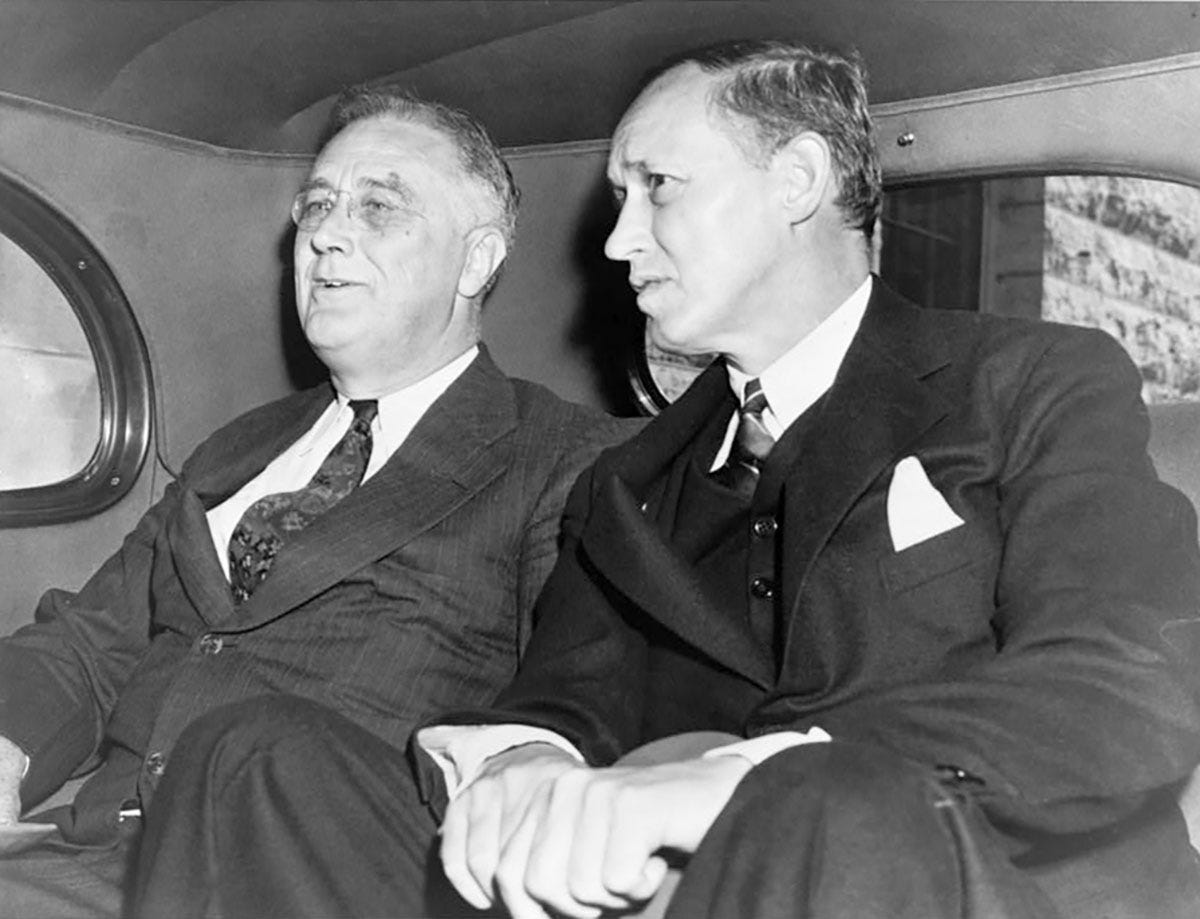Harry Hopkins may be an unfamiliar name. But in the 1940s, he was well-known as President Franklin Roosevelt's closest advisor. During World War II, when his influence with Roosevelt was at its peak, Hopkins held no official position. Divorced and in poor health, for a time he actually lived at the White House. As a result, Hopkins was viewed by many as a sinister, behind-closed-doors intriguer, which made him a political liability. This caused both friends and enemies of Roosevelt to wonder why this most politically attuned of Presidents didn't get rid of him.
Robert Sherwood, in his classic memoir Roosevelt and Hopkins, reported that Wendell Willkie (another forgotten name -- Roosevelt defeated him in the 1940 presidential election) once put the question to FDR: "Why do you keep Hopkins so close to you? You surely realize that people distrust him and resent his influence."
Roosevelt replied, "Some day you may well be sitting here where I am now as President of the United States. And when you are, you'll be looking at that door over there and knowing that practically everyone who walks through it wants something out of you. You'll learn what a lonely job this is, and you'll discover the need for somebody like Harry Hopkins who asks for nothing except to serve you."
This statement intrigues me, because I see no evidence that Hopkins was a strong candidate for sainthood. Before poor health diminished his energies, he was considered as ambitious as any of his peers in pre-war Washington. Rather, it appears that he served Roosevelt because he believed that he could achieve more in this way than he could in any other. If this was his rationale, it would be hard to dispute it. In fact, Winston Churchill ranked Hopkins as one of the half-dozen most powerful men in the world in the early 1940s, even though his power had no other basis than his willingness to serve.
Let me make three propositions:
(1) The desire for purpose and significance in life is universal, at least for those with the opportunity to live beyond a subsistence level.
(2) Significance derives from having an enduring impact for good.
(3) Though we might define "good" in different ways, our definitions inevitably revolve around benefiting other people, either those alive now or future generations.
As I’ve shared in many posts, it seems to me that our society focuses on self-fulfillment. We tend to be suspicious of any idea of placing yourself beneath another person voluntarily. But the only way I know to fulfill yourself is to have an impact for good, and that can only be achieved by serving other people. Serving others, then, does not demean us; on the contrary, it is the path to significance.
Now it is certainly true that some kinds of service are demeaning. This doesn't diminish the value of service -- it means that the responsibility to choose how and whom we will serve is a very important one. Whether we achieve significance depends on whether we open our hearts to care about the people we serve; whether our work aims at goals we believe in; and whether we provide products or services that enhance lives. We need to be sure that our work is worthy of our best efforts.
I’ve observed that relatively few people find the significance they desire through their work – arguably the central activity of most lives. This is sad and unnecessary because, viewed another way, business is ultimately a means by which we serve other people. For many years I led a company that sold products to other businesses. My employees and I often talked about the fact that it was never a corporation at the other end of the phone – it was Fred or Barbara or Bruce or Shalonda, working like each of us to provide for their families and loved ones. When we did our jobs well and helped them succeed, we did a good thing. And we helped them do a good thing, providing products that people needed and that enhanced their lives.
A word to leaders: this frames perhaps the highest and best opportunity that your role provides to you for impact. Yours is the defining influence on the environment that your team experiences. To make the most of this opportunity, you must define clearly -- vividly -- the way that your business, professional firm, or not-for-profit organization is seeking to enhance lives, not just in words but also in your actions from day to day. If you can do this, you will find that like-minded people seek a place on your team. They will be motivated to excel as they understand the significance of what they're doing. And as everyone works together to achieve the mission of the organization, together you can develop higher and better ideas of the good towards which you are working, continually raising the standard of value that you bring to those whom you are serving.
The company that does this will be successful. The ministry or nonprofit that does this will have the impact they yearn for. People who work there will have significant lives.Isn't this what we want from life? Why should our work be about anything less?





So good. Ted Fletcher would have loved this reflection - as do I!
Excellent!!! Hugs and enjoy the day.